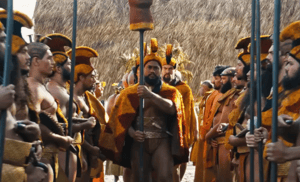Public Interest Journalism funded through NZ On Air
“I always considered myself to be like a taro shoot trying to grow in the snow”
“It can never happen you know”.
These were Fa’amoana Luafutu’s words, as he testified in July 2021 at the Tulou-Our Pacific Voices hearing in Mangere, Auckland. The phrase was used as a metaphor to describe the struggles Luafutu had faced in his time as state ward in the 1960’s.
He recalls the taro shoot (ti’apula) that grew in the hot, humid tropics of Samoa, quite like the taro shoots he would help his dad plant back in Samoa. Migrating to New Zealand and the experiences he went through, he describes as a taro shoot, perishing in the snow.
Before jumping on a plane to New Zealand, Luafutu vividly remembers early memories with his grandparents in Samoa.
“I remember my great grandmother; she was blind and I used to be her eyes. I’d travel around with her and take her to the toilet or just walk around with her in the village. She was totally blind, and she died at ninety something”.
“But I left her and she was my earliest memories of someone being close to and someone that use to tell me fa’agogos (stories) that’s our word for fairy tales aye and she was a good storyteller my great grandmother”
“My dad knew how to be a dad in a Samoan environment you know. I had a lot to do with him we would go to the ma’umaga (the plantation) and I would do little things that would involve me and my father and the male members of my family”
“The male fathers over here had no role, because you’re not going out fishing with your son or going to the plantation anymore. Your son is going to get clever at school and you’re just going to go work”
A run in with the police as a 13-year-old in Central Auckland, was the beginning of a downward spiral for Luafutu. Already having dabbled in small petty crime with friends and cousins, he found himself farewelling his parents, heading to his first encounter as a state ward.
“Everybody’s a clean page, and we’re all born in innocence you know. And what was written on my page, by going into those homes made me the way I was when I came out. That was total rejection of everything in this world” said Luafutu as he recalled his time as a state ward in his testimony last year.
Through all the hardships and trials, Luafutu was fortunate to find his way into acting and performing arts. It was a platform he felt comfortable with in letting out his story without any hesitation.
His time as an actor and performer saw him connect with director Nina Nawalowalo and film company The Conch. The friendship between the two blossomed over the years, with Nawalowalo now directing a film about Luafutu’s life called, A boy called Piano. The film, which dives deeply into Luafutu’s roller coaster life, also shines a light on the relationship Luafutu had with his family.
For Luafutu, he always wishes that he never left Samoa in the first place. The cold climate and rushed lifestyle affected him rapidly, especially his relationship with his father.
Nawalowalo described the relationship between her and the Luafutu family as one with “trust”.
“I think for Fa’amoana to have the courage to look at a specific part of his life, looking at state care, looking at all those realities, um why would one ever go through such dark times, ” Nawalowalo said.
Music director Mark Vainilau echoed Nawalowalo’s thoughts, as he felt a deep connection to Luafutu’s story.
“It’s interesting, because for the longest time I didn’t work with my own people. I left the church in 2000, and that’s where I did most of my work with the Samoan community”.
“But doing this project, it made a lot more sense to me because I understand I guess the stories are similar to the people I grew up with. I’ve known Fa’amoana and the family for several years and there are a lot of things that we do that are unsaid that make sense” Vainilau said.
Fa’amoana’s son Matthias, and grandson Tane Luafutu, both take part in the film, recreating scenes from Luafutu’s time in state care. Both Matthias and Tane have had their fair share of run-ins with their dad/grandad, but the film process became a healing moment for them as a family.
“2019 was the first time I heard that my grandfather was in the boy’s home,” Tane said.
His distant relationship and bond with his granddad began to heal slowly, as he understood a lot of the abuse he had gone through in the boy’s home.
Matthias, who also is an actor, also spoke of his father’s journey in the film and its impact on their relationship. It’s an ongoing uphill journey for them, but Matthias believes that there has been so much improvement.
As for Fa’amoana Luafutu, he hopes that the film can not only heal his relationships, but also be of aid for other people in the community.
“Even though my life isn’t described as a success in society’s eyes in some ways, I hope that what we leave behind for the country is a bit of hope for what we are trying to do with our plays. By reinforcing belief that theatre and art can help initiate social change in society”
A Boy Called Piano will be broadcasted on Māori Television in February 2023.
Credits:
Footage from The Conch documentary film: A Boy Called Piano – The Story of Fa’amoana John Lufautu (NZIFF 2022), directed By Nina Nawalowalo












